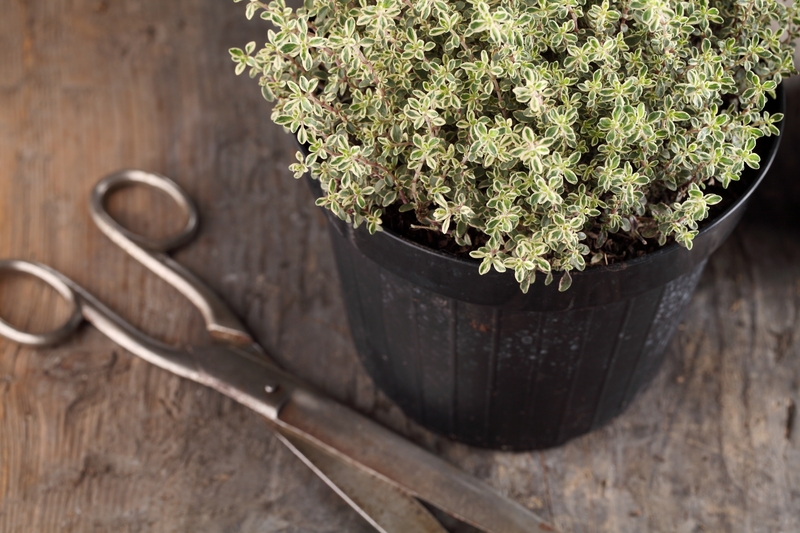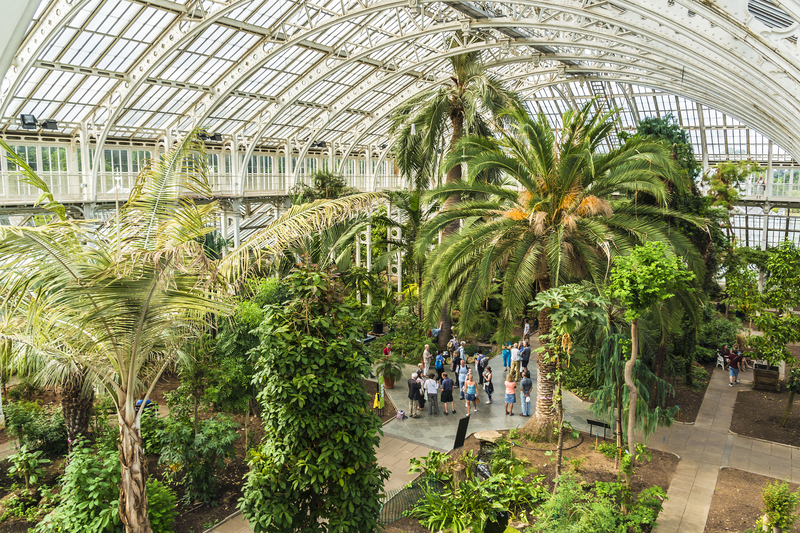Gardening Tips to Nurture Young Minds and Bodies
Posted on 28/08/2025
Gardening Tips to Nurture Young Minds and Bodies
Gardening is more than just a delightful outdoor activity; it's a powerful tool for nurturing both the minds and bodies of children. By engaging young people in gardening, we give them opportunities to learn new skills, develop a connection with nature, and form healthy habits that last a lifetime. Whether you are a parent, teacher, or caregiver, integrating gardening into a child's routine can yield remarkable benefits. In this comprehensive article, we share essential gardening tips for nurturing children's minds and bodies, along with creative ideas and best practices for a thriving young gardener.
Why Gardening is Important for Children
Encouraging children to spend time gardening is more than an enjoyable pastime; it is a holistic educational experience. Here's why:
- Physical Development: Digging, planting, watering, and weeding help children develop fine and gross motor skills, enhance strength and coordination, and promote physical activity.
- Mental Growth: Gardening sparks curiosity, critical thinking, and problem-solving as kids plan, observe changes, and troubleshoot plant problems.
- Emotional Well-being: Working with soil, seeds, and water has a calming effect, alleviating stress and boosting mood. The sense of achievement as plants grow nurtures confidence and patience.
- Educational Value: Real-life lessons in biology, chemistry, weather, and environmental stewardship are naturally woven into gardening activities.
- Healthy Eating: Growing their own food encourages children to eat more fruits and vegetables, fostering lifelong healthy eating habits.

How to Start a Child-Friendly Garden
Choose a Safe and Accessible Location
For nurturing young gardeners, it's crucial to set up a welcoming and safe children's garden space. Select an area with plenty of sunlight, close to the house or classroom if possible, and free from hazards such as sharp tools or toxic plants. Raised beds, container gardens, or designated plots ensure easy access for small hands and feet.
Select the Right Tools for Kids
Equip children with age-appropriate, lightweight, and brightly colored gardening tools. Small watering cans, trowels, gloves, and spades help make gardening comfortable and manageable. Store tools safely and teach kids garden safety tips from the start, such as not running with tools and washing hands after gardening.
Pick Easy-to-Grow Plants
Success in the garden encourages enthusiasm. Opt for child-friendly plants that are quick to germinate and easy to care for. Consider these favorites:
- Sunflowers - Fast-growing and impressive in size.
- Beans - Climbing or bush types are simple and fun.
- Radishes - Short time from seed to harvest.
- Lettuce and salad greens - Quick and rewarding.
- Herbs like basil and mint - Aromatic and versatile.
- Strawberries and cherry tomatoes - Sweet and irresistible for children.
- Marigolds or nasturtiums - Hardy, bright, and edible flowers.
Engaging Activities: Creative Kids' Gardening Ideas
Seed Starting and Observation
Watching a seed transform into a seedling is a magical process for young minds. Have children:
- Plant seeds in egg cartons or recycled pots on a windowsill.
- Keep a plant growth diary with drawings, notes, or photos.
- Sprout beans in a clear jar lined with damp paper towels to observe roots and shoots.
Theme Gardens
Make gardening even more fun with themed beds or containers. Try a:
- Pizza garden - Grow tomatoes, basil, oregano, and peppers.
- Butterfly garden - Plant milkweed, zinnias, and lantana to attract pollinators.
- Salsa garden - Combine tomatoes, cilantro, peppers, and onions.
- Sensory garden - Include plants with unique fragrances, textures, and colors for hands-on exploration.
Composting Experiences
Teaching children about composting instills important lessons in sustainability and ecology. Let kids:
- Gather kitchen scraps, leaves, and garden clippings for the compost pile.
- Learn the basics of decomposition and observe insects in the compost bin.
- Incorporate finished compost into garden beds to "feed" their plants.
Educational Benefits of Gardening for Kids
Boosting STEM Skills Naturally
Gardening provides a practical foundation for science, technology, engineering, and math (STEM) education. Children can:
- Measure plant growth and rainfall, making charts and graphs.
- Experiment with different soil types and fertilizers.
- Study pollinators, insects, and the role of biodiversity.
- Design simple irrigation systems or trellises for climbing plants.
Nurturing Responsibility and Independence
By assigning gardening tasks--such as watering, weeding, or harvesting--children learn responsibility, teamwork, and decision-making. They also discover the rewards of patience and persistence with every flower that blooms and every vegetable harvested.
Encouraging Curiosity and Observational Skills
Gardening is an ongoing lesson in observation. Kids learn to:
- Notice changes in plant growth and react appropriately.
- Track the life cycle of insects, butterflies, birds, and worms.
- Identify colors and shapes of leaves, seeds, and flowers.
- Ask questions about weather, soil, and plant health, leading to discussions and new discoveries.
Promoting Healthy Habits Through Gardening
Instilling healthy habits in children starts with hands-on exposure. Gardening makes healthy living both enjoyable and accessible by:
- Increasing outdoor time and reducing screen time.
- Promoting fresh air, sunlight, and physical movement, which support overall fitness and immune health.
- Fostering a love of fresh fruits and vegetables, leading to better nutrition.
- Creating opportunities for mindfulness, relaxation, and connection to nature.
Tips for a Positive Gardening Experience with Children
- Keep it simple: Start with small, easy-to-manage plots or containers rather than large expanses.
- Set realistic expectations: Not every plant will thrive! Emphasize the joy of the process over perfection or productivity.
- Let kids lead: Allow children to make choices about what to grow, where to plant, and how to decorate the garden space.
- Celebrate success: Mark each harvest or bloom with photos, garden parties, or sharing produce with friends and family.
- Encourage exploration: Invite children to touch, smell, taste, and observe in their garden--multiple senses support deeper learning.
- Be patient and flexible: Children's attention spans may be short. Keep sessions brief, varied, and fun.
- Make it social: Garden with siblings, friends, school groups, or community projects to foster teamwork and communication.
- Integrate technology: Use gardening apps, online plant databases, or digital cameras to document growth and learn together.
Seasonal Gardening Activities for Kids
Spring
- Start seeds indoors and watch germination.
- Observe worms and bugs returning to the soil.
- Decorate plant markers and paint garden stones.
Summer
- Grow sunflowers and measure their height weekly.
- Pick berries and make simple garden-fresh snacks.
- Set up a simple pollinator watering station.
Autumn
- Harvest root vegetables and fruits.
- Plant bulbs for spring flowers.
- Create leaf collages and compost piles.
Winter
- Plan next year's garden together.
- Make bird feeders from pinecones and seeds.
- Explore indoor gardening with microgreens or windowsill herbs.
Overcoming Common Challenges in Children's Gardening
Short Attention Spans
Make gardening sessions brief and focused. Rotate activities often and celebrate small steps, like the first sprout or harvest.
Impatience with Slow Growth
Combine fast-growing crops (radishes, lettuce) with slow-growers (carrots, sunflowers) to keep interest high.
Pests and Plant Problems
Turn challenges into learning moments. Help kids identify garden pests and discuss eco-friendly solutions such as attracting beneficial insects.
Lack of Space
Don't let limited outdoor space deter you. Try container gardening, vertical gardens, or even indoor setups using windowsills or grow lights.

Nurturing Lifelong Connections with Nature
Gardening helps forge deep and meaningful connections between children and the natural world. By giving kids firsthand experiences in soil, sun, and green growth, we nurture curiosity, resilience, and environmental responsibility. These connections promote a sense of stewardship for nature, encouraging sustainable practices and appreciation for our planet from an early age.
Conclusion: Growing Future Gardeners
Integrating gardening into children's lives sows the seeds for healthy bodies and curious minds. Through outdoor exploration, creative projects, and real-life science, kids gain the skills, knowledge, and confidence to thrive in and outside the garden. With a blend of patience, support, and fun, every grown-up can help nurture a new generation of gardeners and lifelong environmental stewards.
Ready to Begin?
Gather your seeds, pick up your trowels, and invite young hands to dig, discover, and delight in the garden. The lessons learned and memories made will bear fruit for years to come.
Looking for more gardening inspiration? Check out related articles on our website or subscribe to our newsletter for seasonal gardening tips and activities for young gardeners!
Latest Posts
Transforming Gardens into Dog-Friendly Environments
Ensuring Your Garden's Survival During Adverse Weather
Green Up Shadowy Spaces with Evergreen Climbers for Shade

